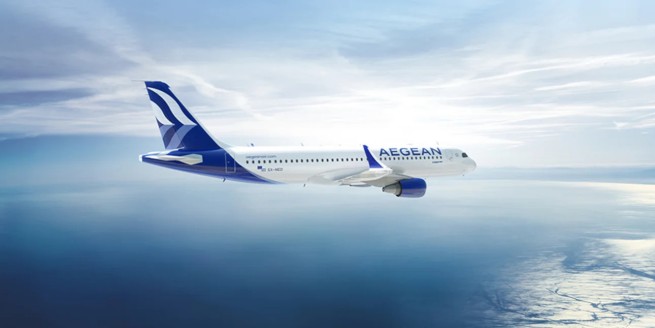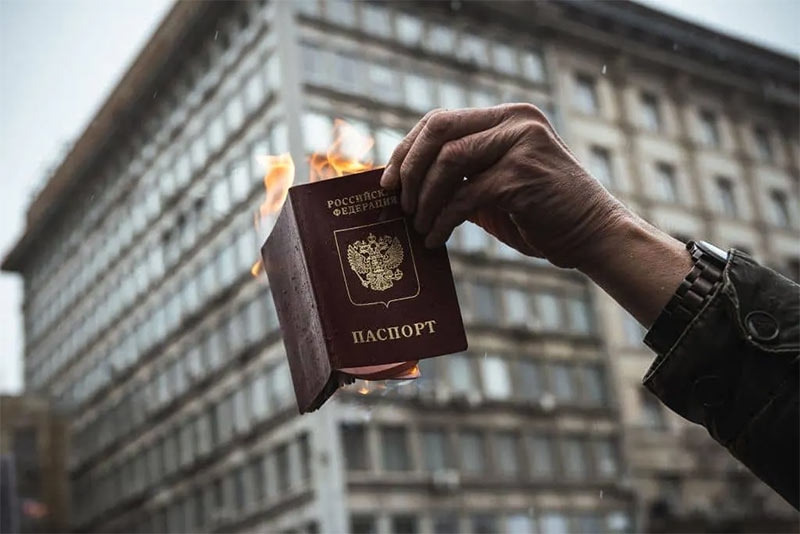Kyiv’s proposed ban on issuing tourist visas to Russians is outrageous racismwrites The Spectator. Such a move will not produce the results that the West is striving for, but will only confirm that Moscow is being opposed pathological Russophobesthe author believes.
Who do you still hate, Russia or Putin? Questions Owen Matthews, author of The Spectator.
It is to this question that the dispute about whether to ban the issuance of tourist visas in EU Russians or not.
Ukrainian President Volodymyr Zelensky told the Washington Post last week that the “most important sanction” the EU could apply to Russia is to “close the borders because the Russians are taking away foreign land.” He added that the Russians should “live in their own world until they change their philosophy.”
As much as one admires Zelenskiy’s determination and leadership, his call for a visa ban is absolutely and dangerously wrong – while Boris Johnson’s insistence at the very beginning of the war that the people and government of Russia are two different things was absolutely correct.
The ban on entry into Europe for those who have a Russian passport is the same racist and as misguided as Donald Trump’s 2017 idiotic “Muslim travel ban” that excluded travelers from a range of supposedly dangerous Islamic countries. It’s wrong because it makes Putin right when he claims that the war is being waged by pathological Russophobes and dictated by hatred of all Russians.
The logic of the travel ban is essentially Putin’s. For the Kremlin, it is the patriotic duty of every Russian to support a “special military operation” and Putin has publicly invited all Russians who disagree to leave the country. The visa ban is based on the assumption that all Russians support Putin and the war (according to a new Kommersant poll, only 52% are currently in favor of continuing the war, while 38% support peace talks), and ignores the bold minority of Russians who dared to speak out (and suffered severely from the draconian new laws), and a much larger minority who silently oppose the war.
First of all, according to Barack Obama, such a ban “betrays our deepest values. We are not who we are.” The denial of due process, like waterboarding prisoners or imprisoning without trial, ultimately diminishes us in the West and blurs the moral boundaries between the parties to the war in Ukraine.”
Estonian Prime Minister Kaia Kallas echoed Zelensky’s call, tweeting that visiting Europe is “a privilege, not a human right.” Finnish Prime Minister Sanna Marin agreed, telling public broadcaster YLE that “it is not right that while Russia is waging an aggressive, brutal war of conquest in Europe, Russians can live a normal life, travel around Europe, be tourists.”
But there is a fundamental confusion underlying such arguments. It is true that the sanctions themselves are collectively punishing every inhabitant of Russia by depriving them of access to the vast array of Internet resources, banking services and retail that we in the West take for granted. But the sanctions are primarily aimed at undermining the Russian economy as a whole and attrition of the Kremlin’s military machine. The element of collective punishment is collateral damage, not the main goal. Banning tourist visas, on the other hand, does nothing to undermine Putin’s war economy, but directly and unequivocally punishes Russians for being Russians.
Even such ardent supporters of Zelensky as the former US ambassador to Moscow, Michael McFaul, have tempered their initial enthusiasm. McFaul proposes a sort of tax on guilt in the form of a surcharge on visa fees, which will go to help and arm Ukraine. This could be an acceptable compromise – especially if it is framed as a direct contribution to, for example, the Ukrainian Red Cross, which will put Russian civil servants in a difficult position, as well as to the public list of donors to Kyiv’s humanitarian efforts. A better response would be to return to the courageous spirit of Zelensky’s address to the Russians – in their native Russian language – on the last evening before the war, where he urged Russians to remember their countries’ shared historical, cultural and family roots and to stand up to their leader’s militancy.
But besides the moral aversion to any bans based on nationality, there are also strong practical arguments in favor of not only rejecting the idea of a ban, but also radically abolishing any restrictions. Of all the freedoms that the collapse of the USSR brought, freedom to travel was one of the most transformative—it allowed the broad masses of educated middle-class Russians to connect closely with the rest of the world and think they were part of a global community of like-minded and modern people.
Putin would like to reverse this. He has already clearly targeted “foreign influence” as the alleged root cause of liberal and democratic ideas that directly challenge his regime, branding thousands of journalists and activists as “foreign agents.” Putin has already banned more than three million of his compatriots from leaving the country because they work in “sensitive” industries or ministries. There are regular rumors on Russian social media that the Kremlin is planning to reintroduce Soviet-style exit visas to keep the rest inside the country. Restricting travel for all Russians not only does Putin’s dirty work, it also cuts off Russian society from interacting with the very world that millions of them would like to return to.
If the EU were really serious about undermining the Putin regime and its values, it should consider lifting travel restrictions on Russians, as Brussels has already done for Ukrainians, rather than imposing new restrictions. By all means, exclude all Russian officials, military and national guardsmen, holders of official “service” passports, employees of Kremlin-controlled media companies and all those who serve as cogs in the state machine. Or even introduce an age limit for visa-free travel, limiting them, for example, only to persons under 30 years old. At the same time, the EU should create a Russia-focused version of the Erasmus program that offers tens of thousands of university and college places to as many young Russians as possible – instead of kicking Russians out of “technical” courses on the grounds that providing such education violates EU sanctions, as argued last month by Czech Deputy Education Minister Radka Vildova.
Allowing young Russians to travel and study freely in the EU and the UK would be a huge step towards undermining Putin’s poisonous and gerontocratic suffocation in his country and countering his attempts to bring Russia back into a Soviet future. It would also be a strategic investment in our own future security, contributing to the formation of a new, post-Putin Russian society based on shared democratic values. But most importantly, an open and creative travel and education policy, signaling that the world is fighting not the Russian people but the Kremlin’s aggressive policies, will prove Putin wrong when he says the West despises his country. A visa ban would do just the opposite.
The opinion of the author may not coincide with the opinion of the editors.
It seems that the countries of the West, who did everything to start this war, did not themselves expect such … help from Putin. Bravo .. Vova.







More Stories
There will be no forced return of Ukrainian men from abroad; the e-office for those liable for military service will start working on May 18
Will Europe forcibly return Ukrainian draft dodgers?
Xi Jinping's leverage: can China encourage Putin to stop the war in Ukraine